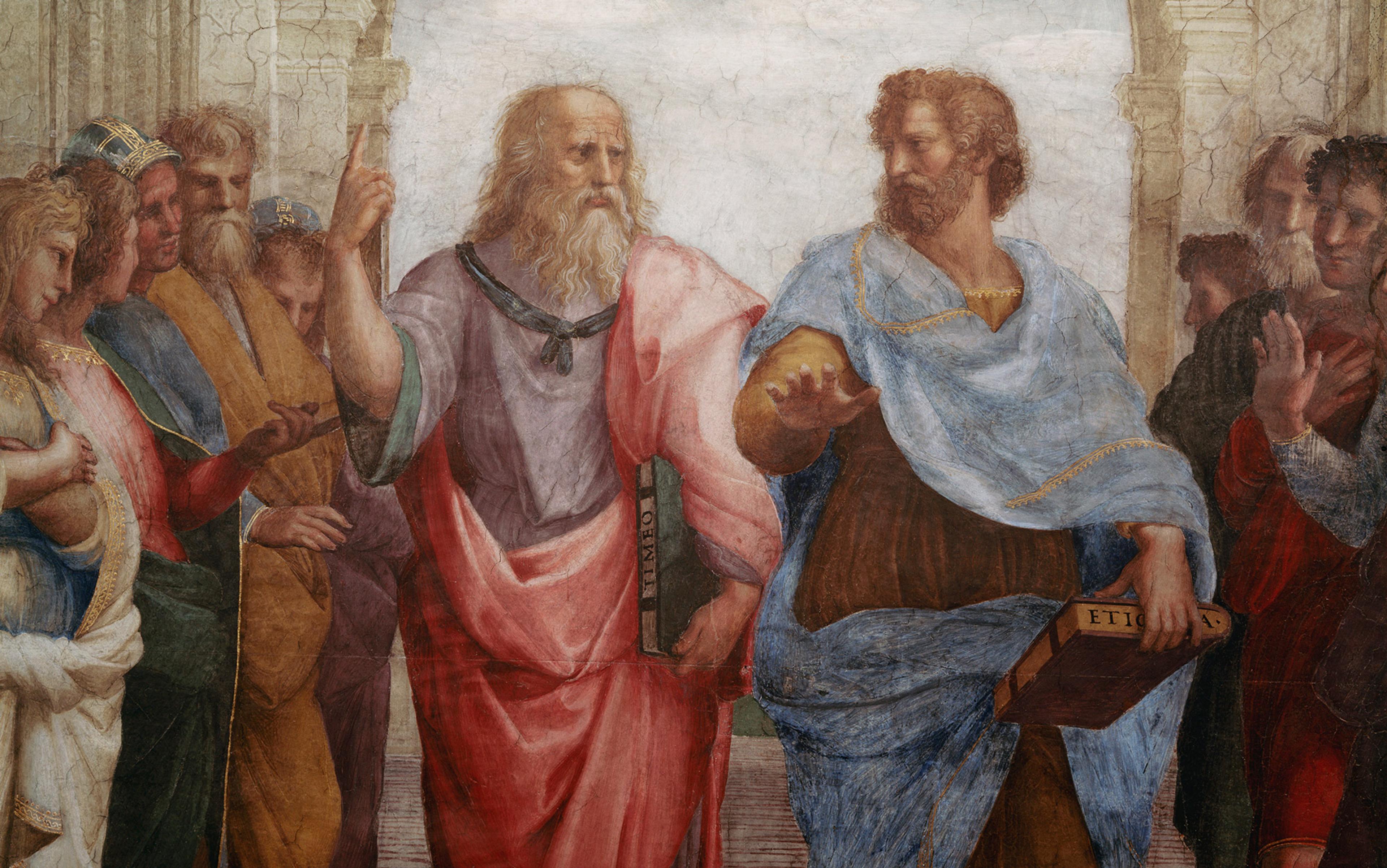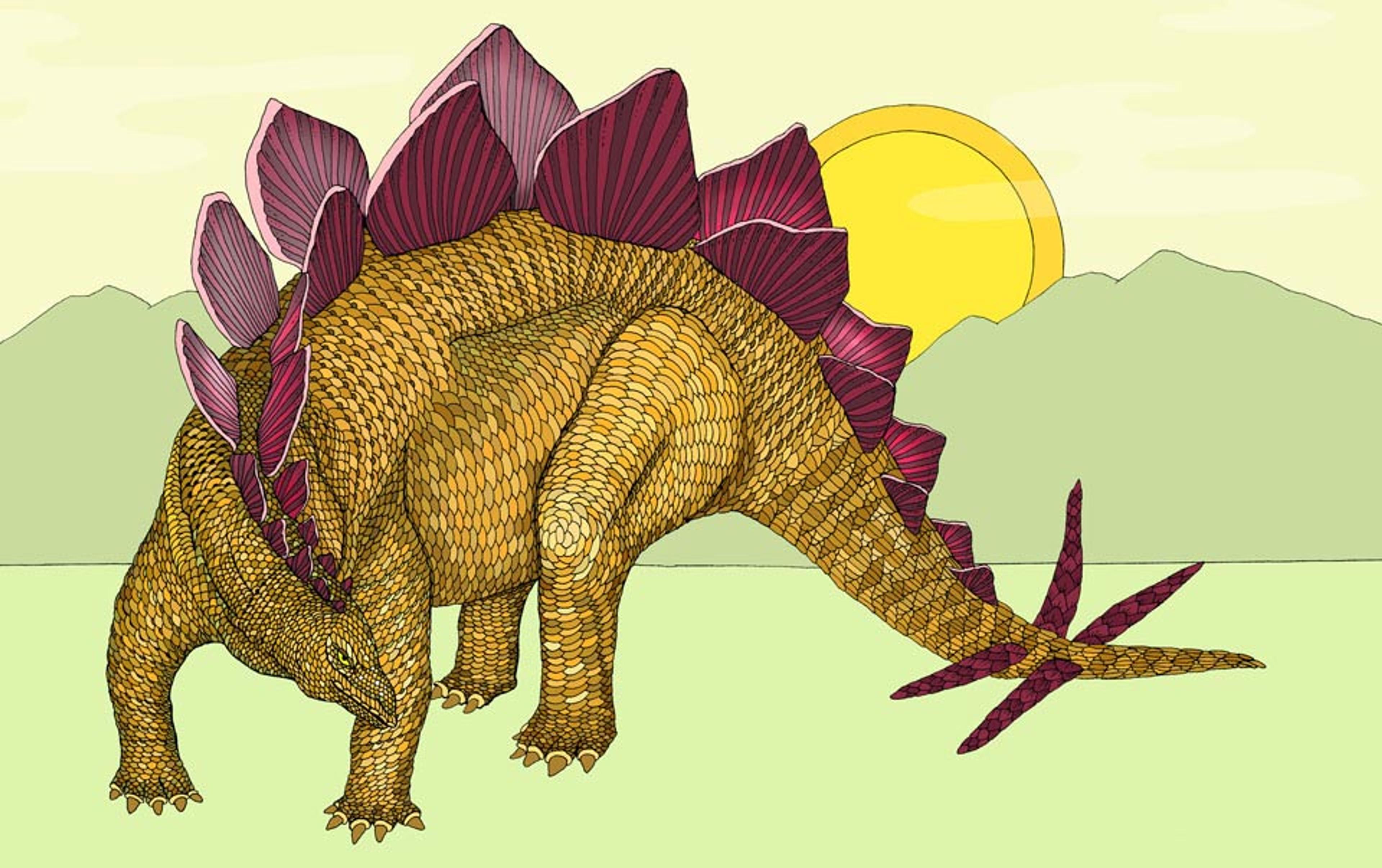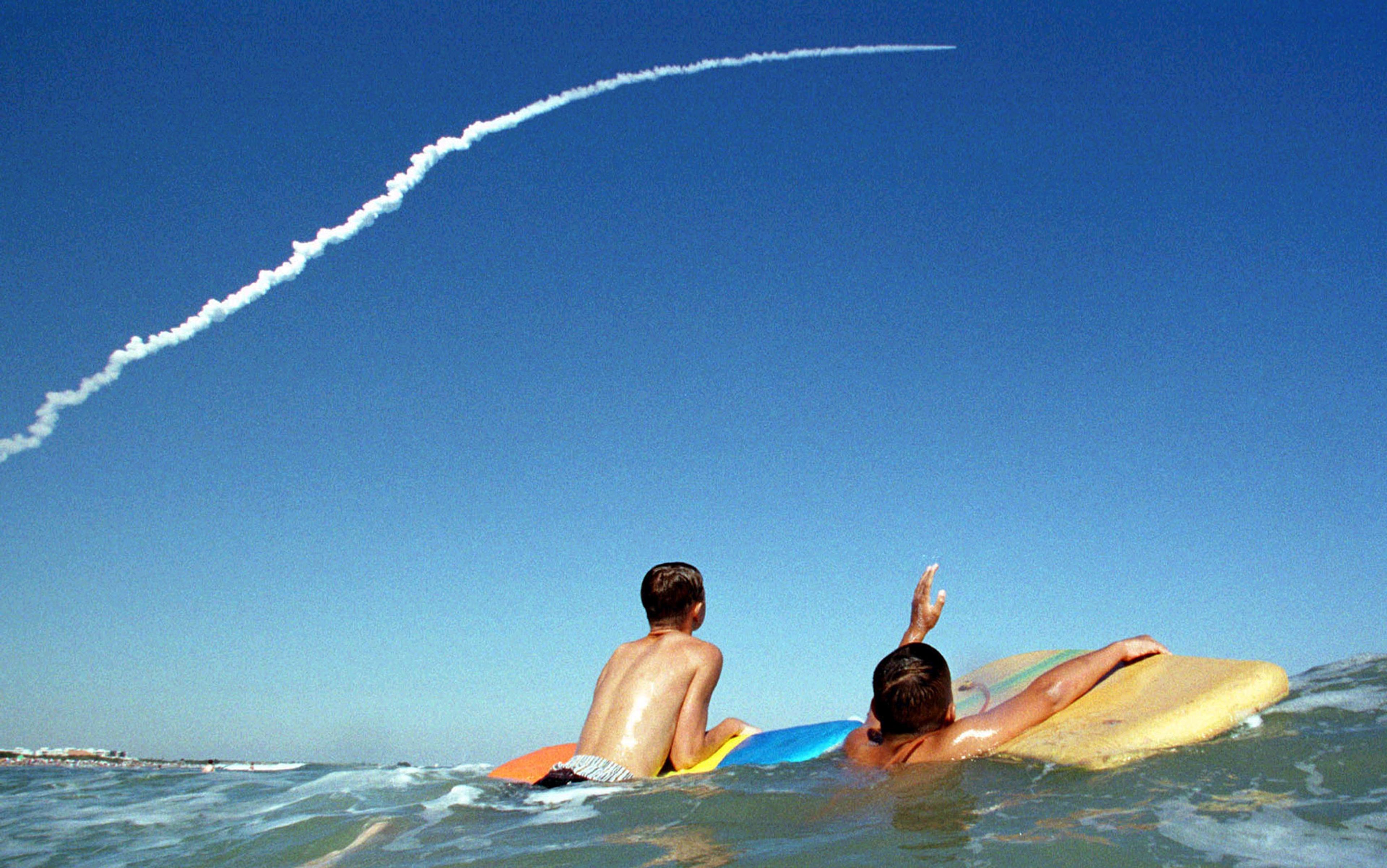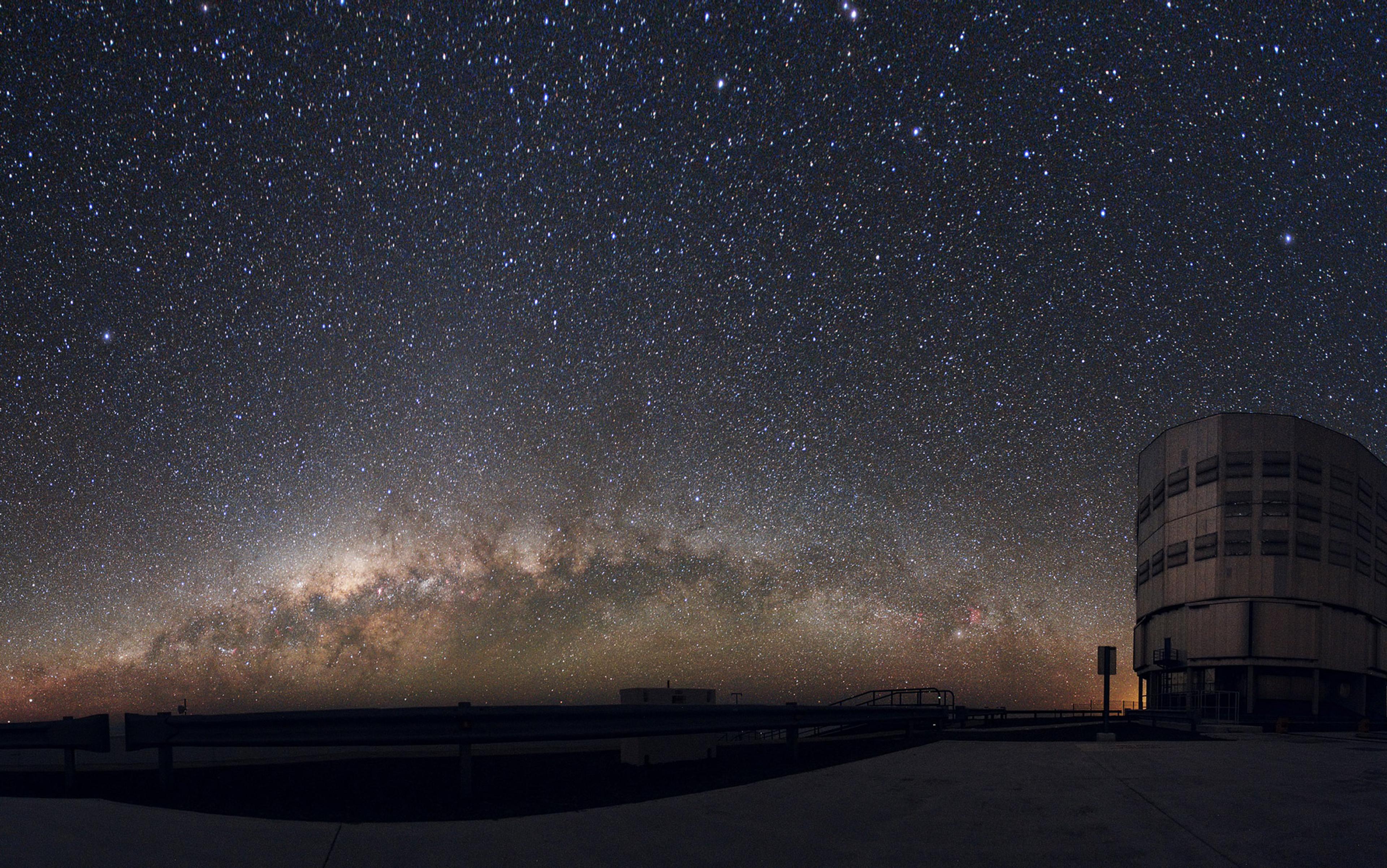It was an idea long consigned to the dustbin of scientific history. ‘Like a virgin consecrated to God,’ Francis Bacon declared nearly 400 years ago, it ‘produces nothing’. It was anti-rational nonsense, the last resort of unfashionable idealists and religious agitators. And then, late last year, one of the world’s most renowned philosophers published a book arguing that we should take it seriously after all. Biologists and philosophers lined up to give the malefactor a kicking. His ideas were ‘outdated’, complained some. Another wrote: ‘I regret the appearance of this book.’ Steven Pinker sneered at ‘the shoddy reasoning of a once-great thinker’. The Guardian called it ‘the most despised science book of 2012’. So what made everyone so angry?
The thinker was Thomas Nagel, the book was Mind and Cosmos, and the idea was teleology. In ancient science (or, as it used to be called, natural philosophy), teleology held that things — in particular, living things — had a natural end, or telos, at which they aimed. The acorn, Aristotle said, sprouted and grew into a seedling because its purpose was to become a mighty oak. Sometimes, teleology seemed to imply an intention to pursue such an end, if not in the organism then in the mind of a creator. It could also be taken to imply an uncomfortable idea of reverse causation, with the telos — or ‘final cause’ — acting backwards in time to affect earlier events. For such reasons, teleology was ceremonially disowned at the birth of modern experimental science.
The extraordinary success since then of non-teleological scientific thinking and its commitment to forwards-only ‘mechanistic causation’ would seem to support Bacon’s denunciation of teleology. But it continued to bubble under the surface as a live problem for some, particularly regarding descriptions of life. Immanuel Kant wrote that, when observing a living being, we couldn’t help thinking in teleological terms, and to do so was justified for its scientific usefulness. Even so, he concluded, an ultimately teleological explanation was unauthorised, since we could never know whether it was true or not. Friedrich Engels hailed the publication in 1859 of Darwin’s Origin of Species as the final nail in the coffin for teleology; yet one of Darwin’s admirers felt able to read it nonetheless as confirming a teleological view of life’s development, a position that Darwin himself (mostly) rejected.
The idea that living things had purpose would not go away, and it sparked developments in fields beyond biology itself. Norbert Wiener, in his classic 1948 treatise Cybernetics: Or Control and Communication in the Animal and the Machine, argued that once artificial systems are engineered to include ‘feedback’ (when the output becomes part of the next input), then we have created a new kind of ‘teleological machine’: a machine that has purpose, just like an organism does. Later, the philosopher Alasdair MacIntyre’s After Virtue (1981) argued that moral philosophy had lost its way precisely because it had abandoned Aristotelian teleology — the idea that there was an essential ‘true end’ for a human being, a naturally correct way for a person to flourish. ‘The whole point of ethics,’ MacIntyre wrote, ‘is to enable man to pass from his present state to his true end’. If you no longer believe in such a true end, he argued, the whole enterprise lacks rational grounding.
Nagel says that the appearance of conscious beings such as us can be described as the universe waking up
Meanwhile, Hegel’s teleological view of human affairs — as the world-spirit pursuing an ultimate aim through the dialectical operations of history — proved surprisingly durable, through various modulations. Even in our own time, Francis Fukuyama’s The End of History and the Last Man (1992) advanced the teleological argument that liberal democracies were the culmination of a process of natural selection that had winnowed out all other kinds of social organisation. And a kind of diluted Hegelian teleology is still present in notions of ‘progressive’ politics, as well as, more explicitly, in the utopian-armageddon dreams of Singularity theorists, who believe we are destined to merge spiritually with our own machines.
In Mind and Cosmos, subtitled Why the Materialist Neo-Darwinian Conception of Nature is Almost Certainly False, Nagel revives the concept of teleology on the basis of his conviction that the mind-body problem has more serious ramifications for evolutionary science than is ordinarily accepted. How does the electrochemical activity of neurons in the human brain produce subjective, first-person experience? Nobody knows. Nagel says that the appearance of conscious beings such as us can be described as the universe waking up. Yet to him it seems unlikely that life would ever have got started in the first place, somehow springing forth from ‘dead matter’; still more unlikely that some forms of life would have developed consciousness; and extremely improbable that one form of life would have acquired the ‘transcendent’ power of reason. In order to explain these events, Nagel suggests, you need more than simply the ‘mechanistic’ tools of the laws of physics, natural selection, and so on. You need not just physical theory but ‘psychophysical theory’. And you might even need teleology.
It’s a bold claim, but not in itself an unscientific one. Indeed, what Nagel’s critics rarely conceded was the fact that teleological talk remains rampant to this day in popular and even academic science writing. Vast subterranean seams of purposive metaphor imply a picture of final cause not only in modern biology but in chemistry and physics, too. It has long been accepted that ordinary descriptions of biological function, such as ‘The heart is for pumping blood’, are teleologically inflected shorthand. But we also commonly read, for example, that subatomic particles ‘know’ or ‘choose’ the ‘right’ path to take; that molecules rearrange themselves ‘in order to’ achieve a certain energy state; or that traits in organisms evolve ‘in order to’ allow the animal to do something new.
Everywhere we ascribe purpose to the workings of the natural world. While there are often ways of rephrasing such descriptions to eliminate the implication of purpose, it is surprising how natural such teleological talk still seems to us in science, half a millennium after its spectre was supposedly banished for good. And its attraction seems unlikely to dwindle at least while the origin of life — the unsolved puzzle that drives Nagel’s thinking — is still mysterious. There is still no convincing answer to the question of how, as the physicist Vlatko Vedral put it in his essay ‘What Life Wants’ for this magazine, one might reconcile biology and quantum physics in order to explain the ‘purposefulness’ of living things.
In Mind and Cosmos, Nagel’s suggested teleology does not involve a creator; it is merely a law-like tendency in the universe that somehow loads the dice in favour of the appearance of consciousness. In this conception, Nagel writes, ‘things happen because they are on a path that leads to certain outcomes’. (It is important that other laws of nature be non-deterministic, as quantum physics arguably implies they are, in order for the teleological law to have some purchase over events.) As Nagel puts it, it might be that the universe exhibits ‘a bias toward the marvellous’. If so, it would not be surprising that consciousness had appeared, because we live in a universe whose very purpose, aim, or telos, is the production of consciousness.
If anything, this sounds quite comfortingly mystical so far. However, what particularly infuriated critics was Nagel’s attitude towards evolutionary biology. It is his doubts about evolutionary theory which motivate the teleological speculations. It is true that Nagel is far too polite to the creationists of the ‘Intelligent Design’ movement, who still cleave to a supernaturalist version of teleology that requires a god-creator; their arguments, he writes, ‘are of great interest’. On the contrary, ID’s arguments have been comprehensively and repeatedly demolished — for instance, during the humiliation at the 2005 Dover Area School District trial of one of the ID theorists whom Nagel admires, Michael Behe.
Perhaps this aspect of Nagel’s book might be excused as a sin of misplaced intellectual charity. More troubling is his fondness for the argument from personal incredulity. ‘It is prima facie highly implausible,’ he intuits, ‘that life as we know it is the result of a sequence of physical accidents together with the mechanism of natural selection’. There are insuperable ‘questions of probability’. The current orthodoxy, he suggests, ‘flies in the face of common sense’. Well, one reasonable answer is that it is and has always been the job and the glory of science to fly in the face of common sense. If a theory that is robustly supported by evidence conflicts with your common sense, you had better adjust the latter. And so we now accept, for example, that apparently solid objects are composed of atoms themselves largely made up of empty space, and that the Earth goes round the Sun and not vice-versa. More specifically, personal feelings about probability do not get you very far when considering evolutionary theory. Nagel doubts whether there could have been enough viable mutations ‘in the available geological time’ for beings like us to evolve through sheer ‘accident’. But, as the philosopher of biology Peter Godfrey-Smith wrote in a respectfully critical review for the London Review of Books, ‘This is one area in which intuitions are worth nothing.’ The experts have done the math.
Nagel has a cosmic horror of the fluke, because it is so unconsoling. But what if the appearance of life and consciousness just were sheer flukes? What if they probably wouldn’t happen again if you ran the universe from the same initial conditions? What if there are a great many different universes, and life just happened to arise in ours but not in most of the others? These possibilities cannot be prima facie dismissed, but Nagel rules them out because in such realities there would be no ‘explanation’ of a sufficiently robust sort for the ‘remarkable’ fact that we are here, searching for explanations. But what if it’s just the case that no explanation of the sort Nagel thinks worthy of the name is to be had? In that case, or so it seems, we would have nothing left to do but pack up our philosophical toys and go home.
Not only can we not help speaking teleologically, but on this picture it can make perfectly good materialist sense to do so
That is why, Nagel argues, we need teleology, to help make the appearance of philosophers (and baristas, and princesses and diving instructors) more likely than not. It sounds fantastical, but the scorn to which Nagel’s book has been subjected is less justified here than it is in relation to his views on evolution. Firstly, the idea of fundamental teleological laws is not in itself incoherent, as shown by John Hawthorne and Daniel Nolan’s entertaining 2006 paper ‘What Would Teleological Causation Be?’, which Nagel cites. And secondly, as we have seen, so much scientific language today is still teleological.
For a more detailed example, take a couple of sentences from Brian Cox and Jeff Forshaw’s recent popularisation of (one intepretation of) quantum physics, The Quantum Universe: Everything That Can Happen Does Happen (2012). ‘This is the basis of chemistry,’ the authors write: ‘it is energetically favourable for atoms to fill their energy levels with electrons, even if that is achieved by sharing with a neighbour. Their “desire” to do this, which ultimately stems from the principle that things tend to their lowest energy state, is what drives the formation of everything from water to DNA.’
Cox and Forshaw have carefully put scare quotes around ‘desire’, since of course we are not invited to think that atoms really want anything. But teleology is still arguably implied by three other terms they employ without such rhetorical rubber gloves: the idea that it is ‘favourable’ for atoms to do one thing rather than another, as though there is a good for them; the principle that things ‘tend’ to one energy state rather than another, as though seeking it; and the notion that all this ‘drives’ the formation of compounds, as though aiming at it. Metaphorically at least, it’s teleology all the way down.
One radical option here is to bite the bullet and take seriously such verbal ascriptions of purpose to inanimate matter. One thing we know has purpose is mind. So if matter has purpose, maybe that’s because it has mind as well? Such reasoning would lead one to the position of panpsychism, another old theory lately revived by the philosopher Galen Strawson and others, and which Nagel also mentions at several points in Mind and Cosmos as one possible component of an eventual ‘psychophysical’ theory. On this view, mind is a fundamental property of all matter, not just of particular collections of matter arranged brainwise. So a rock or even an electron has itself a tiny bit of mind. This idea certainly has its charms, though it also creates new problems: how, for example, is a large or ‘thick’ consciousness such as a human one supposed to be built up out of all the tiny bits of proto-consciousness enjoyed by the particles of matter that make up the brain? Panpsychism might be true, but it seems difficult to investigate experimentally. Many doubt how much of an ‘explanation’ it really provides, even on a more liberal understanding of explanation than Nagel’s own.
Contrarily, one can attempt to domesticate teleology through careful redescription, translating metaphors about intentions into vocabulary that is consistent with mechanistic causation. The philosopher Tim Lewens, for example, has shown how to do this for descriptions of evolution. We can still say, he argues in his book Darwin (2007), that wolves have evolved to run fast ‘in order to catch deer’, because this expresses a ‘conditional fact’: ‘The wolves’ environment may be such that were these wolves to run faster, they would catch more deer. This conditional fact can cause the pack to become composed of faster-running wolves.’ (Because faster-running wolves will be better fed and so likely to leave more offspring.) And so it is legitimate to use the teleological explanation that ‘a particular pack of wolves is composed of fast runners because running fast helps wolves to catch deer’. No wolfish intentions or overwatching designer-agent are thereby implied; now we have a respectably naturalised version of teleology. Not only can we not help speaking teleologically, but on this picture it can make perfectly good materialist sense to do so.
How much else might teleology elucidate? Nagel invokes it to explain what he considers otherwise unlikely: the development of animal consciousness and, before that, the organisation of ‘dead matter’ into DNA. (Some critics retorted that it is now thought that DNA was preceded by RNA, apparently having missed Nagel’s footnote observing that, if so, the question of how RNA itself got started is still a conundrum.) But why start there? There are even more fundamental questions about the distant past that might be amenable to teleological therapy. Cox and Forshaw, for example, concede at the end of their book that there is currently no good explanation for why the universe contains the particular particles it does. Might teleology provide a suitable deus ex machina?
In cosmology, in fact, teleological principles are seriously proposed in some quarters as an answer to the ‘fine-tuning’ puzzle — why the laws of nature are ‘just right’, to a very fine degree of precision, for allowing a universe that can support life. The physicist Paul Davies endorses a teleological ‘life principle’ in his book The Goldilocks Enigma (2007). This is an example of what is called ‘anthropic’ reasoning, which generally proceeds by inverting the question of human origins. Instead of asking how we came to be here in the universe as we understand it, an anthropic line of inquiry begins by observing that we are here, and then explores what that fact might tell us about the universe.
Other theorists, however, are allergic to anthropic talk, finding it distastefully solipsistic. Instead, they propose a multiplicity of universes, each with different laws of nature. We should not be surprised to find ourselves in a universe that can support life, on this view, because in one of the other (perhaps far more numerous) universes, we simply wouldn’t be there to be surprised in the first place. But this is just the kind of ‘many-worlds’ argument that Nagel refuses to call an explanation, though there are some versions of it that incorporate teleology on a grander scale. The physicist Lee Smolin, for example, who disdains anthropic arguments, offers a kind of non-human-centred teleology in his ‘fecund universes’ hypothesis, according to which many universes are undergoing a process of natural selection so as to produce the maximum possible number of black holes. Meanwhile, Hawthorne and Nolan, at the end of their paper, show how teleological laws in principle could even explain why there would be any universes at all in the first place, or ‘why there is something rather than nothing’ — a question that is otherwise, depending on one’s philosophical and scientific proclivities, either trivial, deeply mysterious, or nonsensical.
But what if, after all, it’s not about us?
The problem for fundamental teleology as a scientific hypothesis is not that it is definitely not true, but rather that we currently have no ways to test for such regularities as might be theoretically promoted to teleological laws, or even any very detailed descriptions of what such laws might say. Nagel himself doesn’t attempt a detailed description of teleological laws, leaving the task hopefully to creative scientists of the future. And yet, even if we grant the logical possibility of such laws, it seems open to us to criticise Nagel’s view from a decidedly less Panglossian viewpoint than his own. The idea of teleology has historically been consistently seductive because it seems to grant purpose and meaning — if not to any individual human life, then at least to humanity’s existence as a whole. It is soothing to feel we are part of a story that will have a satisfying ending. Nagel, indeed, rejects many-worlds theories precisely on the basis that they are, as he puts it, ‘not sufficiently reassuring’. But what if, after all, it’s not about us? Might the apparent consolations of teleology break down on a longer view?
Take Nagel’s argument from value. According to him, teleology might be necessary to explain the remarkable capacity of our reason to apprehend not just mathematical but also moral truths. Nagel is a ‘value realist’, so he thinks values (good, bad) are not just expressions of subjective approval or distaste but are embedded in reality once creatures appear for whom things can go well or otherwise. So the cosmos unfolds with a tendency to produce not just conscious creatures but also value; perhaps it even produces conscious creatures just so as to produce value. Yet on some plausible estimates, the amount of bad since the appearance of life on our planet vastly outweighs the amount of good. (Just think of the vast numbers of creatures who have suffered and died horribly over billions of years of evolution on Earth.) If it is the purpose of the universe to produce such a horrifying asymmetry of value, that might seem like a bad cosmic joke, if not worse.
Nagel’s view seems even more vulnerable, on its own terms, over the bleaker long scale of time. Why should we assume that rational creatures like us (wherever they might be: Nagel notes the possibility of alien intelligences) are the telos of the universe, when there is plenty of universal history left to go yet? Some scientists forecast that the universe will eventually end in ‘heat death’, a state of maximum entropy when there is no energy left for anything to happen. Perhaps that, instead, is the ultimate telos of the universe. If so, it might seem a gratuitous and even cosmically cruel diversion to have caused minds to have evolved along the way at all.






